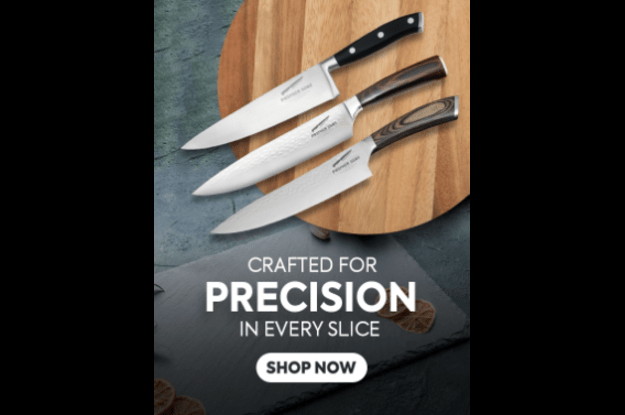German knives are renowned for their exceptional quality, durability, and precision, making them a popular choice among professional chefs and home cooks. In this article, we'll explore the history and characteristics of German culinary knives, highlighting their unique features and what makes them stand out in the world of cutlery.
History of German Knives
Solingen, a city in Germany, has been the hub of blade making for centuries. The city's rich iron ore and coal deposits, combined with its access to water, made it an ideal location for manufacturing knives, scissors, and other blades. This long history of craftsmanship has contributed to Germany's reputation for producing high-quality knives.
Characteristics of German Culinary Knives
German knives are known for their:
- High-carbon stainless steel blades: German knives are made from high-carbon stainless steel, which offers superior sharpness, corrosion resistance, and durability.
- Full tang construction: The blade extends through the handle, providing added strength, balance, and control.
- Ergonomic handles: German knives often feature contoured handles made from materials like wood or synthetic materials, ensuring a comfortable grip and reduced fatigue.
- Precision edge: German knives are sharpened to a precise edge, making them ideal for various cutting tasks.
- Durability: German knives are built to last, withstanding heavy use and requiring minimal maintenance.
Types of German Culinary Knives
Some popular types of German knives include:
- Chef's knives: Versatile knives for chopping, slicing, and dicing.
- Paring knives: Small knives for peeling, coring, and precision cutting.
- Bread knives: Serrated knives for cutting bread and pastries.
- Santoku knives: Japanese-style chef's knives with a flat, straight edge.
Brands to Consider
Some well-known German knife brands include:
- Wüsthof: One of the largest and most renowned knife manufacturers in the world.
- Zwilling J.A. Henckels: A historic brand offering high-quality knives with a focus on durability and precision.
- Messermeister: A brand offering customizable handles and high-carbon stainless steel blades.
Conclusion
German culinary knives are a testament to the country's rich history of craftsmanship and dedication to quality. With their exceptional sharpness, durability, and ergonomic design, German knives are an essential tool for any kitchen. Whether you're a professional chef or a home cook, investing in a German knife will elevate your cooking experience and provide years of reliable service.





Comments